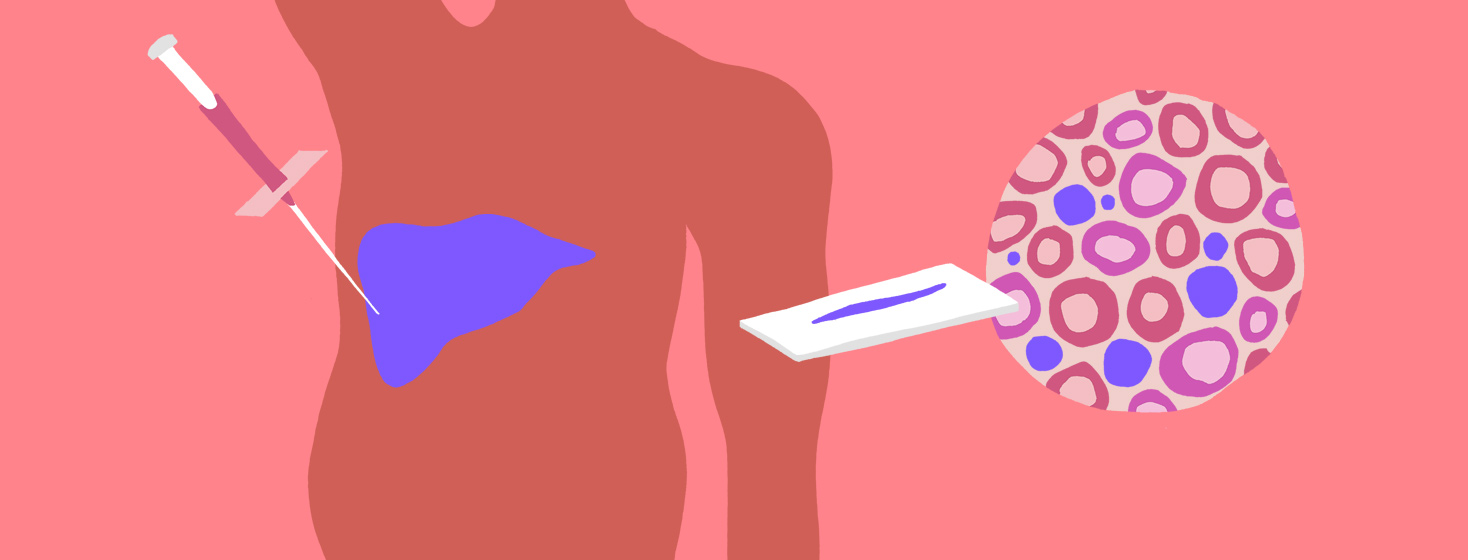Liver Biopsy: What You Need to Know
When diagnosed with hepatitis C, there are many tests to help determine genotype (virus strain), viral load count, and additional tests for liver functioning. Your physician may also order a liver biopsy to see the condition of your liver. For patients, a liver biopsy can help equip you with knowledge and dispel fear, while also helping you and your doctor to make the best possible choices for your liver and overall health.
Why is a liver biopsy performed?
Liver biopsies are an important diagnostic tool to examine the liver structure and determine the stage of liver disease. A liver biopsy provides extensive information about your liver’s condition. A liver biopsy can help to...
- Determine the liver structure
- Diagnose the stage of liver disease
- Determine if fibrosis or cirrhosis has occurred, and what stage
- Detect infections and cancer
- Provide possible causes of liver swelling or abnormal liver enzymes
- Make treatment decisions
How is a liver biopsy performed?
There are several ways a liver biopsy can be performed:
Percutaneous biopsy or needle biopsy
Commonly referred to as standard needle biopsy, where a needle is inserted near the bottom of your right rib cage to retrieve a small sample of the liver. Light sedation is administered for discomfort, but the patient needs to be conscious so that they can take deep breaths and hold it when necessary while the needle quickly takes the liver sample. This is quick and over before you know it.
Transjugular biopsy
A small incision is made in the jugular vein. Then, a tube is threaded down to the hepatic vein and a biopsy needle retrieves a small liver sample. This procedure includes the use of x-rays and contrast dye.
A laparoscopic biopsy
A laparoscopic biopsy is performed with general anesthetic. A small incision is made in the abdomen to take samples of the liver.
Fibroscan
Fibroscan is a new method, approved in 2013 in the US. The Fibroscan is a non-invasive procedure (no surgery or needles required). Fibroscans are done with ultrasound, known as transient elastography. A Fibrosan is a procedure done with sound waves that gives an accurate picture of the entire structural condition of the entire liver rather than a local area.
What are the most common ways liver biopsies are done?
The most common procedures for liver biopsies are with a standard needle (percutaneous) and Fibroscans. Your physician will help determine which procedure is best for you.
How can I prepare for a liver biopsy?
Liver biopsies are done either through an outpatient or hospital facility. If you are having a liver biopsy by methods other than a Fibroscan, you will first have a blood test to make sure your blood clots properly.
Typically, you cannot eat or drink eight hours prior to having the liver biopsy. Prior to the procedure, uour doctor will need to know all prescriptions and over the counter medications, vitamins, or herbal supplements you take. You will be advised which medications, vitamins, and supplements you need to stop prior to the liver biopsy (due to the risk of bleeding). Depending on the type of liver biopsy, you will be given an IV and may receive a sedative or anesthetics. Usually, if a Fibroscan is done, no preparation is necessary.
What is recovery like?
Depending on your procedure, you may be monitored for several hours in recovery before being dismissed. If you had a Fibroscan, often, no recovery is necessary. A liver biopsy is a great, proactive tool to help you know the condition of your liver and how to take care of your liver.
Have you had a liver biopsy or know the condition of your liver?

Join the conversation